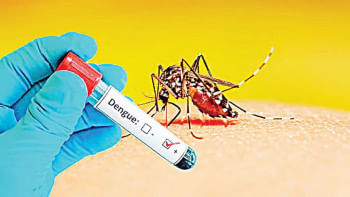Resolutions for 2024

On Sunday, 2023 will come to an end. In the last week of this year, most of us will end up making resolutions, wish for a pair of wings, and draw up lists of what could have been, what was, and what will be. With time, remorse will set in once we realise that we haven't done enough; haven't been good enough; haven't eaten right; or lost enough weight; or even laughed out loud. In spite of regret being a wasted emotion, many of us will still end up listing failures, hoping for our pumpkins to change into carriages while the minute hand marathons towards midnight.
On a pragmatic note, if we were to pinpoint our desires, if we were to become like goalkeepers (with multi-sensory focus), what would be our worthiest score of all? Would we want to stay fit?
Let's face it. Eating less and battling calories have been pains of the highest order. But little do we know that our minds have everything to do with our appetite. In the early 1950s, a man called Henry Molaison had brain surgery to treat epilepsy. But the procedure damaged his hippocampus, meaning that he couldn't form memories, which ultimately led him to dwell permanently in the present. Strangely, since he had no memory, Molaison ended up constantly eating. He ate plate after plate as his mind, without memory, refrained from sending any cues of satiety or hunger.
Therefore, for those of us with memories, we need to remember that while we can't really turn a lettuce leaf into a full feast, we could train our minds to have the cake and eat it too! After all, it's all in the head.
Or would we want more hope?
Exercise doesn't just pump extra blood to our brains, it also activates our skeletal muscles that secrete a potent mix of hormones and other proteins, which travels to our brains and brings a smile to our faces. This mix represents "hope chemicals" which positively influence our behaviour and also give birth to new brain cells. Therefore, in order to have smarter brains, we need to do what we enjoy the most and also work out. I, for one, have set a goal to trek. My children laugh when I say that trekking is going to be easy for me. Having not moved much throughout my life, my resolution to be challenged by heights seems implausible. To most, I may also appear delusional. But it certainly doesn't hurt to have a dash of an optimism bias.
Would we want to laugh harder?
Many of us have had difficulty spotting the source of our depression. Some have even blamed it on the sun. With winter setting in and the sun setting early, it goes that without exposure to sunlight, we end up getting depressed. As a result, the sale of Vitamin D3 has gone up.
Would we want to imagine?
Imagine I will end up playing the piano, learn to swim, retrain my vocal chords for music, climb mountains, write at least a hundred pages of a book I have been planning for the longest time ever, etc. All within 2024. This list of mine is naturally a figment of my extreme imagination. Claire Dudeney, an artist, explains Extreme Imagination and shares that a few years ago when she was on a train reading about someone who got a nail stuck in their foot, she passed out. This ability to imagine is called hyperphantasia. Mental imagery, inherently, is a private thing but it can also be experienced by others who can identify with mind images as they are projected and experienced by others. Having no ability to conjure up a mental imagery is called "aphantasia." Therefore, it's essential for us to imagine as much as we can. Let's believe that this extra stretch of imagination will add to our years.
Would we perhaps want to rest better?
If you are having trouble sleeping, you certainly aren't alone. Once, I did everything to get six hours of sleep, even succumbed to wearing a ring to monitor my health, steps, and sleep cycles. But at the end of it all, I walked up to my wellness boss (my youngest daughter) and declared that the ring causes me "performance anxiety" and that I could not bear to be "monitored" by AI. She accepted and, ever since then, I have been able to talk myself to sleep with just a blackout curtain and with my phone safely distanced from my bed.
Quite unfortunately, insomnia comes with an increased risk of depression and other diseases. Quite expectedly, there is a loss of productivity caused by lack of sleep. In the UK alone, insufficient sleep is equivalent to 1.7 million working hours per year, amounting to an economic loss of almost $50 billion. In the US, 9.9 million working hours are lost every year, equating to a loss of $411 billion.
Would we want more memories?
With Covid being menacingly close to our lives, most of us have reconciled with a compromised memory box. Post-Covid, many of us have had trouble remembering names. And the fear of dementia lurks in the dark. How can we slow it down? Some studies suggest that people engaged in education are less likely to suffer dementia. Apparently, people who are intellectually curious and stimulate their brains build up "cognitive reserves" and are protected from mental decline. Sudoku? Wordle? Chess? Brain teasers? Perhaps calculus for people like us who didn't learn enough maths?
Would we want to stay better in 2024 and beyond?
What would help the most? Warm connections? Relationships featuring secure attachments? Casual ties? Or rather, the healing sound of silence? In fact, the answer lies in all of the above.
A 2015 study showed that people aged above 60, who spent three months doing quilting or digital photography (for 16 hours per week), had more efficient neural function and had, at the end, adopted more youthful patterns than the control group who didn't take part in these activities. This effect lasted for a year for some participants.
In one 2023 study, it was revealed that a group between the ages of 60 and 70 years, through the intervention of music, experienced improvement in memory, neuroplasticity, and grey matter volume.
A 2005 paper titled "Pursuing Happiness: The Architecture of Sustainable Change" shared that 50 percent of our actions are determined genetically; 10 percent depend on life circumstances while the 40 percent is under our control—and we can move the needle as much as we want. Above all, ruminating and cogitating over what's happening and being constantly anxious doesn't help.
For example, if the sign at a beach reads: "Shark sighted today. Enter water at your own risk," then let's also remember that in 2018, sharks killed five people while 3.2 million people die annually merely from inactivity.
Instead of pinning all our hopes on a nebulous future, how about stepping out of our comfort zones to walk the miles, feel the freedom, enjoy the luxury of rest, plan novelties, imagine, set new goals, and invest in memories that truly nurture life and breath?
Dr Rubana Huq is vice-chancellor of Asian University for Women.
Views expressed in this article are the author's own.
Follow The Daily Star Opinion on Facebook for the latest opinions, commentaries and analyses by experts and professionals. To contribute your article or letter to The Daily Star Opinion, see our guidelines for submission.

 For all latest news, follow The Daily Star's Google News channel.
For all latest news, follow The Daily Star's Google News channel. 











Comments